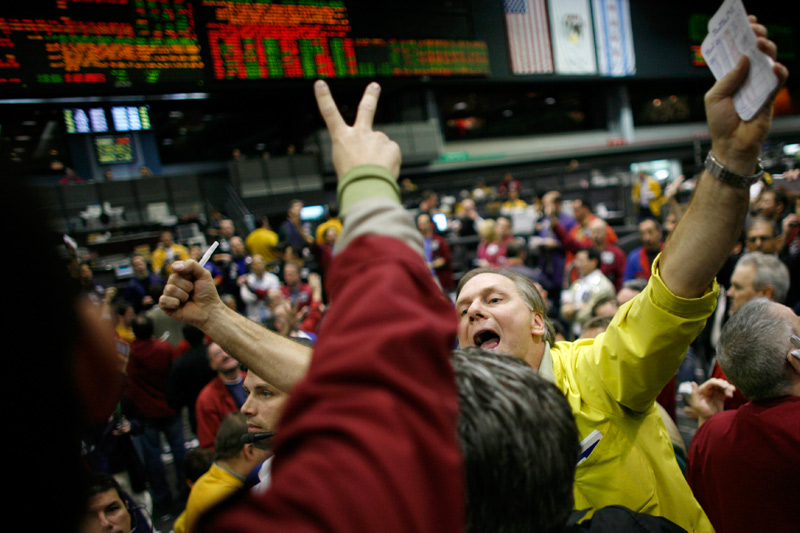By Carolyn Cohn
LONDON (Reuters) - Hedge funds are muscling their way into the market to share the cost of cleaning up after natural catastrophes, but sceptics are questioning whether they will stick around ahead of the next "big one" as underwriting returns fall.
Hedge funds have long been big buyers of insurance-linked securities such as catastrophe bonds, which pay high yields until a disaster hits and make up more than 10 percent of the $570 billion (354 billion pounds) global reinsurance market.
Some alternative fund managers are now taking the next step: setting up their own reinsurance companies to earn a share of premiums and invest the income in high-yield strategies while waiting for the next big hurricane or earthquake.
For the funds, natural disasters have the appeal of being random and usually unconnected to increasingly linked global financial markets, where returns have been low.
The new reinsurers say their ability to invest in higher-risk assets, bet on securities falling in price and leverage their bets with borrowed cash gives them an advantage over traditional reinsurers, which generally invest only in low-yielding, fixed-income assets.
John Rathgeber, CEO of Watford Re which opened its doors this year, said his group used leverage and invested in assets such as low-rated corporate debt, which should promise annualised returns on net assets of 6-10 percent, compared with 2-4 percent for traditional rivals.
The firm was aware of the risks involved and benefited from having insurer Arch Capital as a key investor, he said.
"We have a lot of competitive advantages, with Arch Capital having a track record from an underwriting standpoint, while my job, along with other people in the firm, is to make sure risks are balanced," he said.
But in a conservative industry known for watertight credit ratings and client relationships that can last generations, the arrival of the fast money men has been met with scepticism, especially as competition pushes premiums lower.
"An area of potential concern is whether hedge funds are in it for the long term, building a long-term relationship with the primary insurers," said David Masters, senior reinsurance analyst at ratings agency Moody's.
"There could be concerns over the focus of a hedge fund reinsurer," added Masters, whose company said it expects catastrophe reinsurance prices to fall 10-15 percent in 2015 amid ample supply and reduced demand.
Sceptics say reinsurers set up by hedge funds in lightly-regulated jurisdictions like Bermuda are not as well safeguarded as traditional big European firms like Hannover Re, Munich Re and Swiss Re, or groups with operations at the Lloyd's of London insurance market, such as Hiscox (L:HSX) and Amlin (L:AML).
The hedge funds' alternative investment strategies, including their reliance on borrowed cash, could make them more vulnerable to a "double whammy" disaster like the Sept 11, 2001 attacks on the United States, which caused a market crash that wiped out financial portfolios at the same time as insurers were forced to pay out.
"A lot of the new capital structures out there are not tested," Mike van Slooten, market analysis chief at broker Aon Benfield, told a conference.
"FAIR WEATHER FRIENDS?"
So far, the new reinsurers are small: the combined capital of funds with a credit rating is $5 billion, just a fraction of the $400 billion global property and casualty reinsurance market.
Since its launch earlier this year, Watford Re wrote $84 million in reinsurance the first half of 2014, Aon Benfield said, compared with a global total of $128 billion written by the 31 leading property and casualty insurers and reinsurers.
Of the new entrants, the longest-standing is Greenlight Re, which started underwriting eight years ago. Watford Re and Hamilton Re have been active in the past year.
More are expected to follow, and the newcomers plan to expand. A spokeswoman for Hamilton Re said the firm aims to set up a U.S. business and have a presence at Lloyd's in London.
Though the new reinsurers say they have no plans to exit the business, reinsurance contracts can usually be renegotiated each year. That means there could be a rush for the exits if the business no longer looks worthwhile, said Michel Maila, president of the Global Risk Institute in Financial Services, describing funds as potentially "fair-weather friends".
The new firms have credit profiles that are nothing like those of the established companies. Specialist insurance ratings agency A.M. Best rates five alternative reinsurers - Greenlight Re, Third Point Re, PaCRe, Hamilton Re and Watford Re, but bigger firms such as Moody's rate none of them.
Robert DeRose, vice president for reinsurance at A.M. Best, said hedge fund reinsurers had average issuer ratings of A minus, a couple of notches or more below traditional reinsurers, partly because they are relatively new businesses competing in a crowded market, and partly because of their more aggressive investment strategies.
Hedge funds have returned about 3.4 percent through end of September, industry tracker Eurekahedge said, while alternative reinsurance funds, which would include investment in insurance-linked securities, have returned 4.2 percent.
(Additional reporting by Nishant Kumar in London and Jonathan Gould in Frankfurt; Editing by Simon Jessop and Peter Graff)
